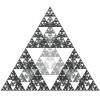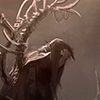Apropos of something the Posthumans were discussing r/e a new game that's coming out (don't ask me which one; we only comment on other company's games when it's an unqualified "hurrah!")...
Where do you draw the line? At what point do you look at a game and say, "Y'know, maybe they should call this space fantasy instead of sci fi?" Or is this something no one actually cares about? :)
—
J A C K G R A H A M :: Hooray for Earth!
http://eclipsephase.com :: twitter @jackgraham @faketsr :: Google+Jack Graham





















